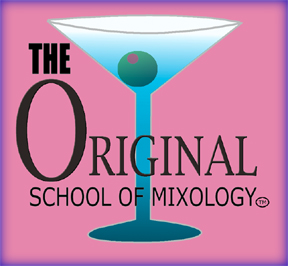The Federal definition for rye whiskey, Bourbon whiskey and wheat whiskey is Whiskey that has been distilled at not exceeding 160 proof from a fermented mash of not less than 51 percent of rye grain, corn grain, wheat grain, and stored in charred new oak containers. If distilled at more than 160 proof the whiskeys identification as rye, bourbon or wheat would be lost, thus accounting for the 160 proof limitation. Missing from the definition is the time limit on the storage period.
Although some parts of the Tennessee production process follow that of bourbon, it differs primarily in the extra steps that take place immediately after distilling. At that point the whiskey is seeped slowly, very slowly through vats packed with charcoal used in the production of Tennessee whiskey. It (charcoal) comes from the Tennessee highlands hard maple tree. When the whiskey comes out of the still it is slowly introduced into vats where it is permitted to seep down uniformly through the entire area of the charcoal. In about ten days the first drops of whiskey trickle out, and continue in this drop by drop fashion until the leaching vat is emptied. Except for aging this production step takes more time than all the other steps combined. This is the reason why it is not produced in high volume. Following the leaching process the whiskey is placed in charred white oak barrels for aging in the Tennessee hills. Result is a gentle mellow whiskey.
RUM
For all purposes rum types are not determined by definition, but geography. Puerto Rican rum MUST come from Puerto Rico. Virgin Island rum MUST come from the Virgin Island, and so on. In general, rums from Spanish speaking countries are light~colored rums; whereas, English -speaking countries tend to produce dark-colored rums. One exception to this rule is Jamaica. In Jamaica, both light and dark rums are produced. Rum is produced in any area where sugar cane can grow. The area best known for its rum is, of course, the Caribbean. The Spanish speaking countries in the area produce lighter rums, generally speaking, than the English speaking countries. Then, such as Cuba was known for their light dry rums. Jamaica and the British colonial area were known for their dark pungent rums. The Virgin Islands are also known for their eight dry rums. And recently a Hawaiian rum, light and dry has been introduced in the U.S.
In short, rum is distillate of the by products of sugar cane. The key requirement for rum is that it must be distilled less than 80% proof and that it must be distilled from the fermented juice of sugar cane, sugar cane syrup or other sugar cane products.
VODKA
Vodka is like whiskey, an alcoholic distillate from a fermented mash of grain. Whiskey however is distilled at a low proof to retain flavor. Vodka is distilled at a high proof and then processed still further to extract all congeners. Vodka is a distilled spirit produced without distinctive character, aroma or taste and produced by methods approved by the federal government. In a sense vodka is more like gin, yet has one big difference, both are made from grain neutral spirits. Neither has to be aged, but in the making of vodka nothing is added to the neutral spirits, but instead all character is subtracted from the spirits, leaving it odor less, tasteless, colorless and smooth. No more potent than any other distilled spirit, vodka, like others has its potency marked on every label, usually 80 to 100 proof.
